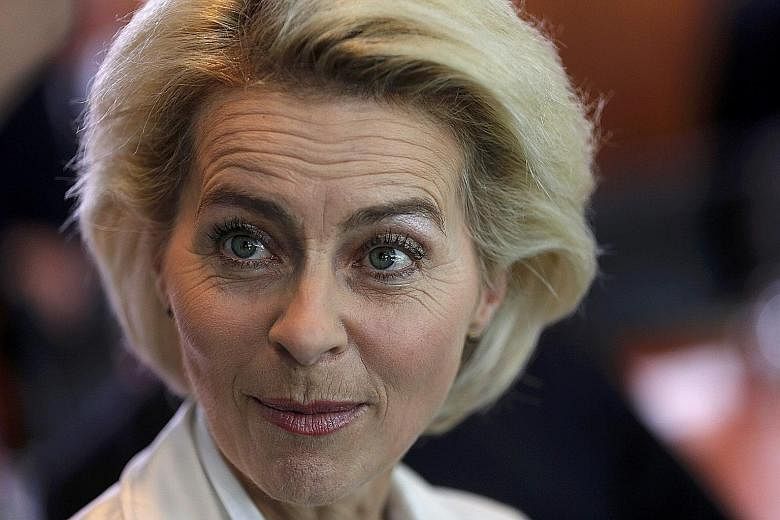BERLIN • Germany's Defence Minister Ursula von der Leyen has fiercely rejected allegations that she plagiarised portions of her doctoral thesis, a charge that has already brought down other high-level German leaders.
According to a report in Der Spiegel weekly last Saturday, dozens of passages in her dissertation clash with academic standards, with over 40 per cent of the document allegedly containing plagiarised text.
However, Ms von der Leyen "not only rejects these accusations, she has... asked the medical school in Hanover" - where she got her doctorate in the 1990s - "to have it evaluated by a competent and independent commission", a defence ministry spokesman told Der Spiegel.
He said the ministry has been aware of the allegations since last month.
Der Spiegel's report cites findings from anti-plagiarism website VroniPlag Wiki, which tracks and counts cases of academic misappropriation. According to the website, "elements of plagiarism were found on 27 of 62 pages" of her thesis, which is a "proportion of 43.5 per cent".
Dr Gerhard Dannemann, a law professor at Humboldt University of Berlin and a VroniPlag Wiki member, said 37 passages in the dissertation conflict with academic rules, such as using external texts without citations, says Der Spiegel.
"The frequency and the ease with which these errors could have been avoided indicate a grossly botched piece of work," Dr Dannemann told Sueddeutsche Zeitung.
Three senior German politicians have stepped down from their jobs since 2011 after being caught in plagiarism scandals. Education minister Annette Schavan quit in 2013 to fight charges from her former university that she had plagiarised her thesis.
In 2011, defence minister and rising political star Karl-Theodor zu Guttenberg resigned after his doctorate was rescinded for plagiarism, earning the aristocrat the nickname "Baron Cut-and-Paste".
Later that year, Ms Silvana Koch-Mehrin, a German member of the European Parliament, was stripped of her doctorate after an enquiry found that "substantial parts" of her 2000 doctoral thesis were copied from others.
Much prestige is placed on academic titles in Germany, with the label of doctor being systematically included when identifying oneself.
AGENCE FRANCE-PRESSE

